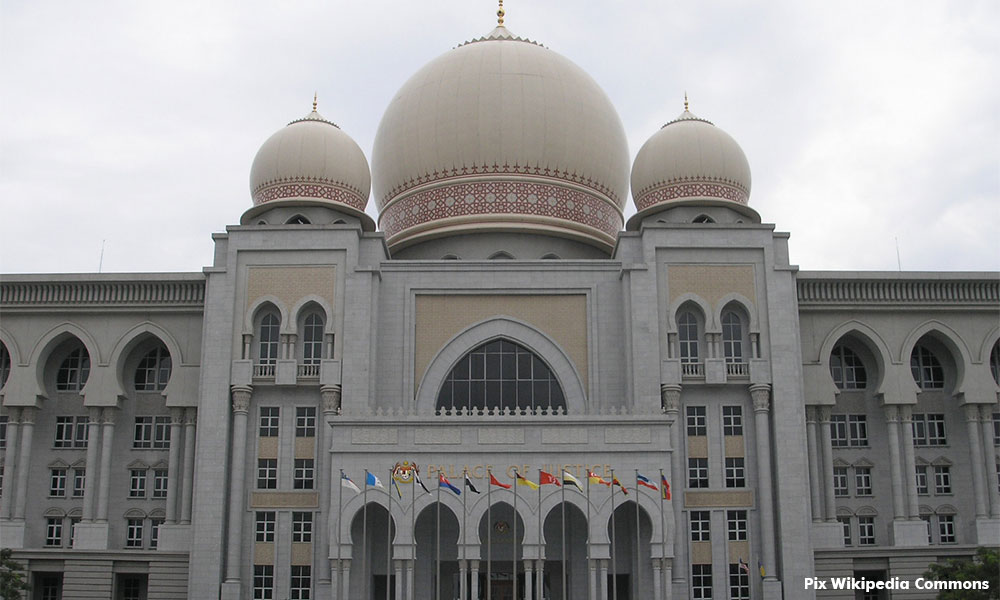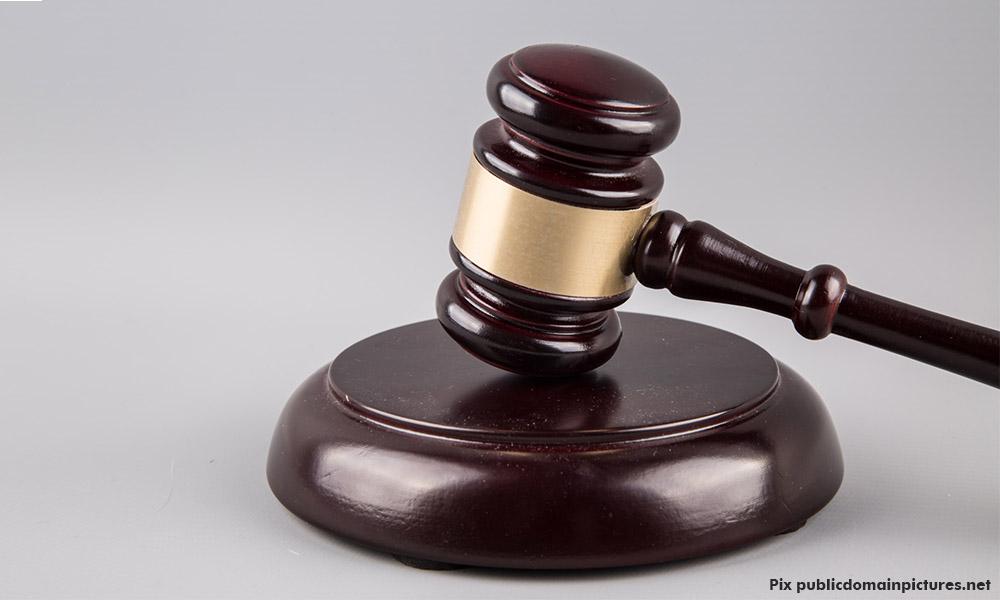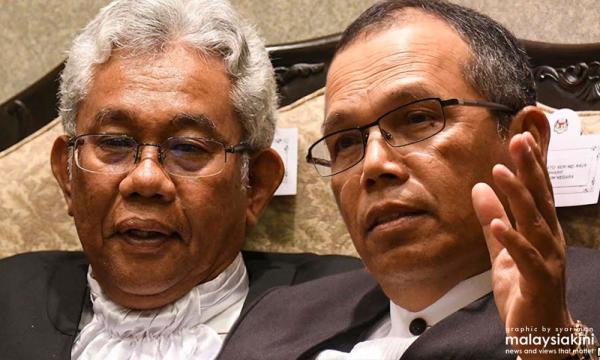COMMENT | The embattled Chief Justice of the Federal Court (‘CJ’) and the President of the Court of Appeal (‘PCA’) had apparently handed in their resignations on June 7. The king seems to have accepted them by the next day.
The press reports that they had said something in their letters rather uniformly. They had stipulated that they would ‘post-date’ their resignations to July 31. They had their reasons.
If all this is true, it seems odd. Can they do it?
Every judge has ‘security of tenure’: before his/her retirement, no one, not even the king, can remove a judge: [Article 125 (1), (9) of the Federal Constitution]. That said, there are only limited ways by which a judge could be removed from office: one is ‘self-removal’ or resignation. The constitution states: ‘A judge… may at any time resign his office by writing under his hand addressed to the [King]’: [Article 125(1), (2) & (3)].
My reading of the constitution reveals an intriguing point: even the king could ‘resign’; the constitution allows it. The law on this is in these words: ‘the [king] … may at any time resign his office by writing under his hand addressed to the Conference of Rulers:’ [Article 32(3)].
Isn’t the phraseology in these two clauses identical: ‘…may at any time resign his office by writing under his hand addressed to [his superiors]’?
What can we make of that?
Suppose the king intends to resign ‘his office’ and does so, but he doesn’t intend to do leave immediately. Could His Majesty write to the Conference of Rulers and say that he would only do so at some ‘future time’? Is this the intent buried within the words of Articles 125(2) or 32(3)?
I feel ‘post-dated’ resignations alter the course of the intended flow of the constitution. That portion of the constitutional law, if we accept these ‘post-dated’ resignations as being legally possible, have the effect of bending the constitution. The constitution becomes plastic. It stays crooked. It sets a bad precedent.
Suppose a judge intends to resign for wholly pedestrian reasons—e.g. that he had become so ill that he is unable to continue in office. If so, can he say to the king: ‘Your Majesty, I’m quite ill. I shall now tender my resignation. In case I get better, I want to come back. Give me two months’? Would such a construction be elastic or plastic?
What were the arguments of those who sued the CJ and the PCA— notably that of the Malaysian Bar? The Bar’s complaint was that the appointment of the CJ and the PCA had been made by a ‘constitutional shortcut’. The other side of the argument is that it was an illegal manipulation of Article 122(1A): namely, the appointers — the ex-PM and the ex-CJ — had made that Article do a ‘constitutional somersault’ - something it was not meant to do.
Under Article 122(1A), even after a judge had retired, the king, ‘acting on the advice of (note what follows) the Chief Justice of the Federal Court… may appoint… for such period of time as [the King] may specify… an additional judge of the Federal Court.’
Technically, the king can appoint an ‘additional judge’ for, two or five years, or more. Who is to say ‘no’? Not the Conference of Rulers. Not the rakyat. It can give rise to an uncontrolled arbitrary exercise of power, right? That is why this power is and ought to be exercised carefully; and correctly.
Legal embarrassment
Now, what is the distinction between an ‘additional judge’ and a CJ? What is the difference between an ‘additional judge’ and the PCA’? Plenty!

The CJ and the PCA have certain constitutional functions, e.g. advising the king on the selection of certain judges, that a normal Federal Court judge - who by the way, has the same rank as the ‘additional judge’ - cannot do.
The Bar Council argued a number of points. It said that a current, ‘about-to-retire’ CJ may not recommend to the king that he himself be re-appointed as an ‘additional judge’. It is a ‘silap mata’ (sleight-of-hand) argument: one couldn’t very well go to the king and say, ‘I am now acting impartially under Article 122 (1A). I recommend that I, who am about to retire, be made an additional judge. My position as CJ will lapse the moment I retire. When I become an additional judge, you the king will then declare me as the CJ.’
That would be a self–perpetuation in office. It would be a conflict of duties. The answer to that was, ‘No, no, no, it was the ex-CJ who had recommended the current CJ to be appointed as an additional judge’. At the time the so-called recommendation could have taken effect, the (then, and now retired) CJ was already out of office. He was in no position ‘to recommend’. The third argument is, when a person is appointed as ‘an additional judge of the Federal Court,’ it had to be someone other than the CJ, other than the PCA.
These are the questions now before the Federal Court. It is not necessary for us to determine the merits of these arguments; that is the Federal Court’s job. We cannot discuss the merits of the case in public. We’d get into trouble for breaching the sub-judice rule.
But look at it practically. Why did these men - the two foremost legal minds in the nation - hand in their resignation in the first place? We don’t know their minds. But we know this. These are men of the law. They would not have resigned if they hadn’t realised that something was wrong with the process of, or route to, their appointments.
One cannot postpone one’s departure if one’s right to stay on does not exist. What is illegal from the beginning, stays illegal to the end. If so, whether they stay on for another minute, a month, or a year, makes no difference.
However, to be fair to them, they do supply an ostensible, possibly entirely proper, reason: ‘We need time to hand over certain duties.’ What ‘duties’ might those be? As to their help in the enabling of ‘a smooth transition’, or ‘help appoint a new CJ or PCA’ that is now not needed.
This is because the members of the Council of Eminent Persons, assisted by the Committee for Institutional Reforms are about to propose a solution. That is part of their wide-ranging job to reform institutional and to use a word employed by one of them, ‘structural’ integrity of the institutions. Appointing a new CJ and PCA would fall into that category.
The position taken by these two outgoing gentlemen, which I have stated elsewhere, creates an ‘ambiguity’.
Under Article 128 (2) of the constitution, the prime minister has a right to refer a question of any such ambiguity to the Federal Court. Again, His Majesty the king could, on his own, ‘refer to the Federal Court for its opinion any question as to the effect of any provision of [the] constitution:’ [Article 130].
Either of them could ask the Federal Court: ‘Were these judges right to post-date their resignations?’ Where would that case go to? It will go, naturally, before their other colleagues in the Federal Court. The remaining judges in the Federal Court will now be asked to decide whether their respective bosses had been properly appointed. They would find themselves legally embarrassed. That can’t be good.
It also creates a legal conundrum: he who is interested in an outcome, cannot sit in judgement over it. On the face of it, is it not true that the rest of judges have some interest in the outcome of this question? This is the legal embarrassment. The Federal Court should not be brought to this pass. Thus, so as not to discomfit or embarrass their colleagues, it is suggested that the outgoing judges have a duty to leave immediately.
And then there are two penultimate points. It is not a good idea to confuse employment law with constitutional law: they are as similar as chalk and cheese. Employees often post-date their resignations because of contractual requirements.
Unwholesome, unwarranted
The law of constitutional resignation is an entirely different creature.
The constitution must be interpreted using constitutional tools. The methods of interpreting an ordinary act of parliament cannot be used to interpret the constitution. See two rules for example: The constitution must be interpreted widely when those in power seek to restrict fundamental rights; it must be interpreted narrowly when those in power seek to expand their own powers.
As is the case here. Why? If we answer the following questions the position will become clear: Are the CJ and the PCA men who wield power? They are. They are the head and deputy of one arm of government - the judiciary.
Will this power that they seek to employ - will the exercise of that power benefit them personally? The answer cannot be a ‘no.’ For they seek to perpetuate the duration of their office, and by consequence, their powers.
How should the constitution be interpreted in that case then? By seeking an answer to this simple question: ‘Does the constitution allow any constitutional appointee like the CJ or the PCA to post-date their resignations?’

The answer is, ‘Although the constitution is silent on that point, any answer other than a ‘no’ breaches constitutional rules’. And there we have it: by post-dating their resignations, the judges exercised a power that they were not expressly granted.
Next, the Privy Council in the case called Ong Ah Chuan v PP [198] ruled that constitutional interpretation should ‘incorporate fundamental principles of natural justice.’
In applying this test, the next question ought to be: ‘Where a suit is pending against the validity of their appointment, is the CJ’s (and PCA’s) post-dating their resignations prejudicial to the principles of natural justice?’
Who will argue that the answer should be a ‘no’? Why should they now be allowed to stretch their time in office, when their position— with or without their resignation— is entirely untenable in law?
This is the plasticity that the case of these two outgoing judges seems to have brought about. A post-dated letter of resignation is an unwholesome, unwarranted, and unheard-of stretching of the original constitutional intent. If such an ‘interpretative stretch’ is right, the constitution would become plastic—it would become crooked.
To set it right we would need a two-thirds majority in Parliament.
In the years to come, everyone would point to this precedent. They would, when resigning on grounds of serious unconstitutional conduct, post-date their resignations, as if it was a constitutional right. One constitutional issue cannot lead to a host of larger ones in the future, like so many buried time bombs, strewn across the nation’s path. We cannot have that as a nation.
It is suggested that all that is required is a letter from the prime minister to these two outgoing gentlemen, intimating to them that, in his considered view, they had no constitutional right to post-date their resignations. Correspondingly, these two gentlemen should depart, not ‘yesterday’, not ‘tomorrow’ but now. To wait even a minute longer is to breach the constitution.
The writing is on the wall.
GK GANESAN KASINATHAN is an advocate and solicitor.
The views expressed here are those of the author/contributor and do not necessarily represent the views of Malaysiakini.


